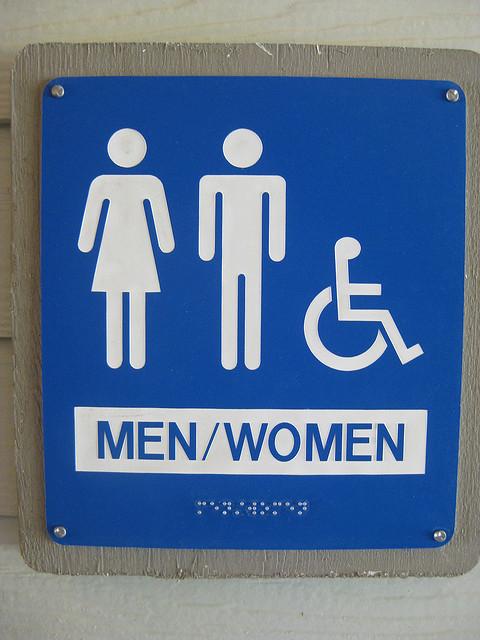Recent Wisconsin legislation concerning the rights of transgender people has refueled debate on the topic, which has been gaining attention nationally.
Rep. Jesse Kremer, R-Kewaskum, and Sen. Steve Nass, R-Whitewater, announced a new bill to make standardizations based on gender in public school bathrooms and locker rooms throughout Wisconsin. The bill would ensure bathrooms and locker rooms would not “be used by persons of the opposite biological gender,” according to a statement from Kremer.
Nass’ spokesperson Mike Mikalsen said the legislation is necessary so every school district is following the same protocol, and parents can’t sue the district if their child is uncomfortable with a person born of the opposite sex using the same bathroom as them.
“In some districts, … they’ve gone too far,” Mikalsen said. “If a transgender student comes in [to some districts], they’re simply going to say the transgender student can use whatever bathroom they want, period. And if other students or parents of those students have concerns, [they say] too bad, so sad.”
Mikalsen said the bill would allow transgender students who don’t want to go into a certain bathroom use a separate bathroom altogether provided by the school, the same way students with religious beliefs or other reasons would want to use a different bathroom.
Bill would tighten restrictions on gender-specific bathrooms, locker rooms in schools
Brian Juchems, senior director of GSAFE, an organization dedicated to creating just schools for LGBTQ youth, said though he agrees schools need guidance on this particular issue, the legislation Kremer and Nass put forth isn’t the right solution.
“That’s not the guidance that schools are looking for,” Juchems said. “They frame it as a safety and privacy issue, and the reality is the policy is basically saying, ‘Well, if you’re a transgender girl, you can’t use the girl’s bathroom.’”
Juchems said 60 districts in Wisconsin have nondiscriminatory policies toward transgender students, and there have been no safety issues. He said he wants legislators to present evidence that safety issues actually are a problem.
Juchems said forcing transgender students to use a separate bathroom further alienates them in school. He said instead, lawmakers should modernize the state’s non-discrimination policy to protect transgender individuals from discrimination.
“I think what is happening right now without clear guidance could [lead to] a lot of well-intentioned mistakes that end up harming students,” Juchems said.
Rep. Mark Spreitzer, D-Beloit, said he is in the early stages of adding gender identity to the state’s anti-discrimination statute, according to Channel 3000.
The Capital Times reported Oct. 14 Rep. Sondy Pope, D-Cross Plains, and Sen. Nikiya Harris Dodd, D-Milwaukee, are seeking co-sponsorship for their own bill that would require the Department of Public Instruction to develop a model policy regarding transgender students and require each school board in the state to adopt its own policy.
U.S. Rep. Mark Pocan, D-Wisconsin, disagrees with the legislation Kremer and Nass put forth. In an email to The Badger Herald, Pocan’s spokesperson, David Kolovson, said Congress needs to pass federal legislation in order to prevent laws like this from moving forward at the state level.
“Singling out transgender individuals, who already face heightened harassment and exclusion in school is backwards and wrong,” Pocan said in an email to The Badger Herald. “Discriminatory state measures such as this one are exactly why Congress must past the Equality Act and prevent further discrimination based upon gender identity.”
The Equality Act is a federal initiative that includes protections in areas such as the workplace and housing for transgender individuals, as well as the rest of the LGBTQ community, Kolovson said. Pocan helped introduce the legislation in July.
But certain lawmakers are still passionate about the bathroom bill, saying it is necessary for safety and privacy concerns.
In a statement, Kremer explained the bill is to keep children safe.
“Clarifying the appropriate use of bathroom and locker facilities will ensure that the dignity of all students is respected in these areas where privacy and safety are paramount,” Kremer said.













